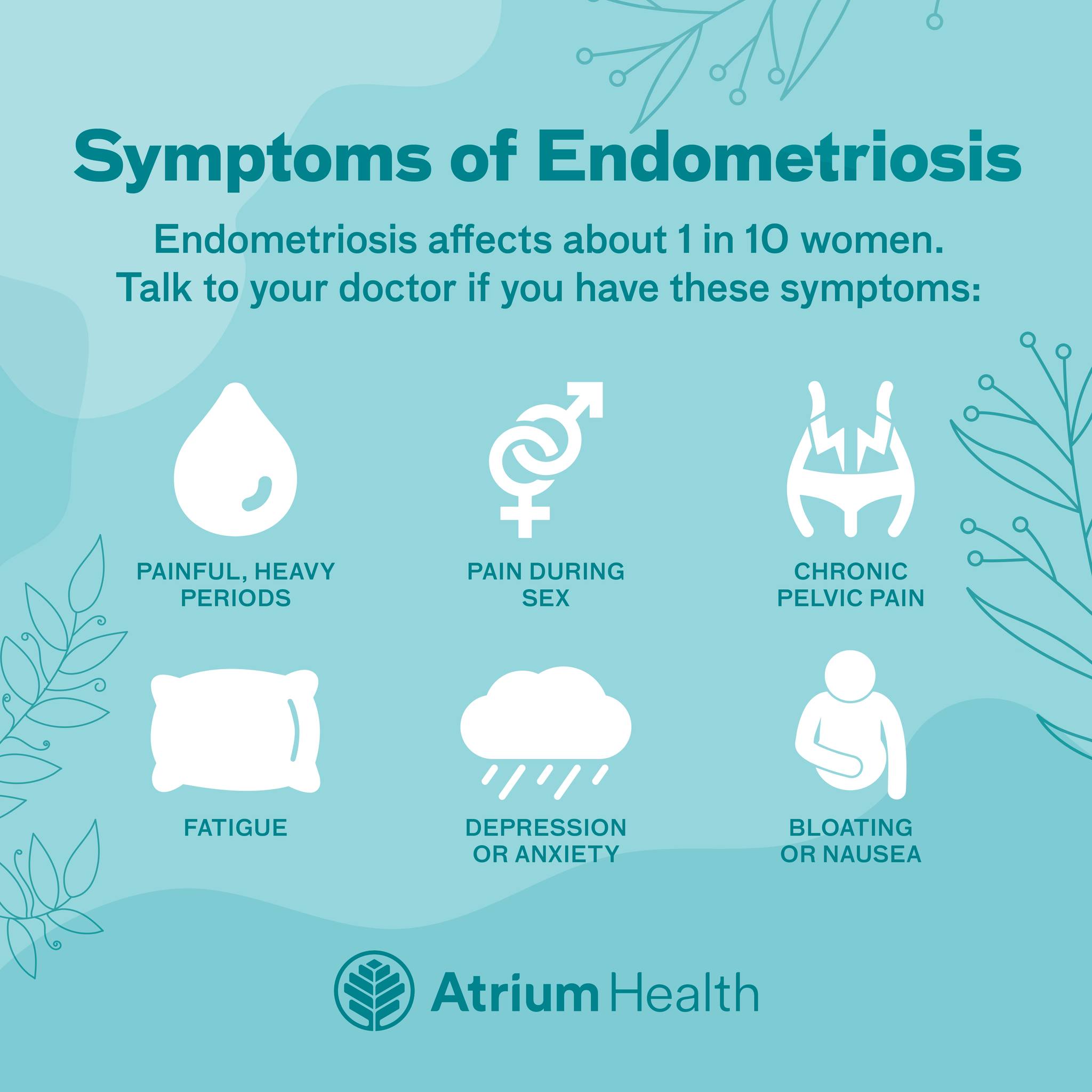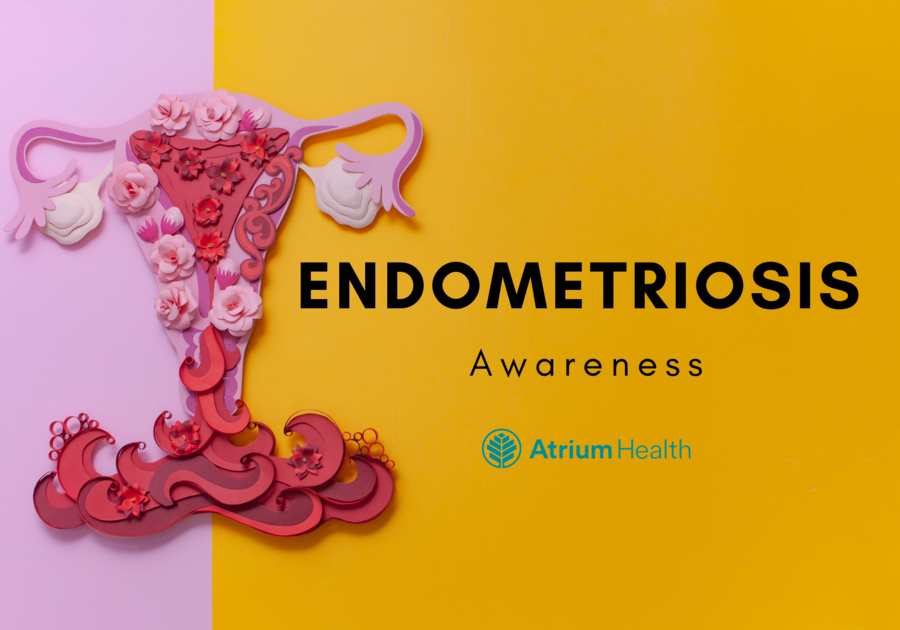Endometriosis can be excruciating to live with and tricky to diagnose, which is why the experts at Atrium Health want to empower women to know the signs and get checked out.
Affecting about 11 percent of reproductive-aged women, endometriosis is a disease that causes the tissue that normally lives inside the uterus to start growing in other parts of the pelvis.
“It can really wreak havoc not only on your quality of life, but it can negatively affect your fertility as well,” says Dr. Nita Desai, director of Atrium Health’s Division of Minimally Invasive Gynecological Surgery.
“It’s all in your head.”
Erica Ceska was 13 years old the first time she experienced severe pelvic pain.
“I went to a doctor almost every day for a week and they couldn’t figure out what was wrong,” she said. Soon after, she started her first menstrual cycle, which showed itself every month after with debilitating pain and nausea.
“When I was a kid, they told me ‘That’s just part of being a woman,’” Ceska said.
Dr. Desai says that used to be a common refrain.
“As teenagers (women) heard they should just suck it up … and use ibuprofen and a heating pad,” she says. “Luckily we know better now. It’s not in women’s heads — it’s in their pelvis. And it’s our job to advocate for those patients and provide them options to figure out what this pain is.”

Solving the puzzle
The tricky part of endometriosis is that it requires surgery to be diagnosed.
“That can certainly be a very scary step for any patient, particularly those who are trying to grow their family,” Dr. Desai says.
Not every woman with endometriosis has trouble getting pregnant, but many do. It’s crucial for healthcare providers to have the full picture of your health — particularly when dealing with infertility.
“The sooner patients have surgeries (to diagnose endometriosis), it certainly gives us an idea of how severe their disease is and helps us be aggressive in their treatments,” Dr. Desai says.
How do you know when it’s time to see a physician? When your pain is impacting your quality of life.
“It’s not normal to miss school because of cramping,” Dr. Desai says. “If it’s really negatively impacting your life, go see a doctor and open up that conversation."
Providers talk about endometriosis in four stages, ranging from mild to severe. And Dr. Desai says typically all stages can be treated with a combination of medications and surgery.
Ceska suffered from severe pain for 20 years and was prepared to have exploratory surgery after she finished having kids.
“Looking back, I wish I would’ve done it sooner,” she said.
Once she was diagnosed and treated, Ceska’s life changed.
“I feel better than normal,” Ceska says. “Because my normal was being in pain. No bloating, no pain, no nausea and that was probably the best part — to not be sick anymore.”
Don’t suffer in silence
“Endometriosis is so important and so seldom talked about,” Dr. Desai says. “You don’t go to brunch and talk about how your pelvis hurts. But I think we should, and I think more women would really feel better and we’re here to advocate for you — so please let us know how we can help.”
 |
Atrium Health makes it easy to find the best doctor for you. With more than 200 OB-GYN providers delivering personalized care across the region, you can visit a location close to where you work or live. Learn more about Women’s Care at Atrium Health.



